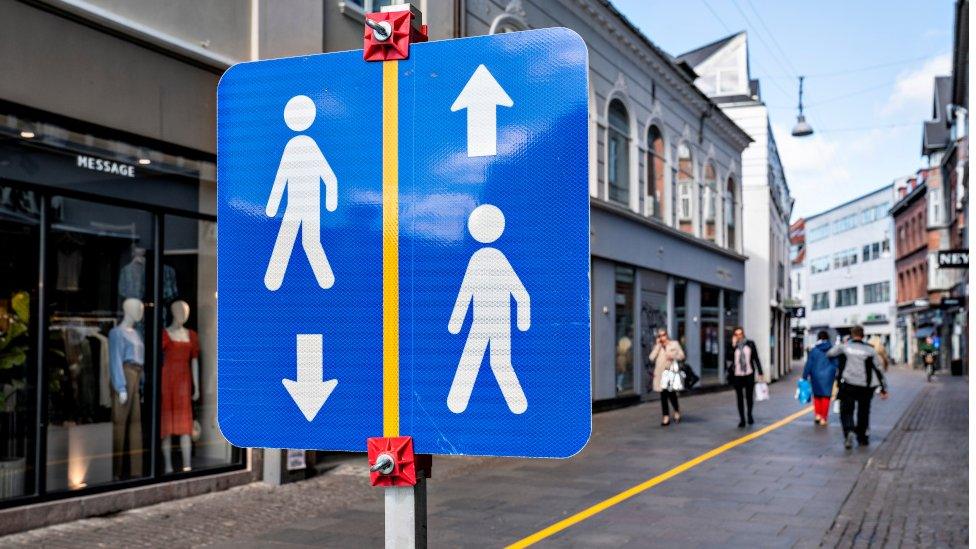Coronavirus: EU leaders disagree over rescue package
- Published
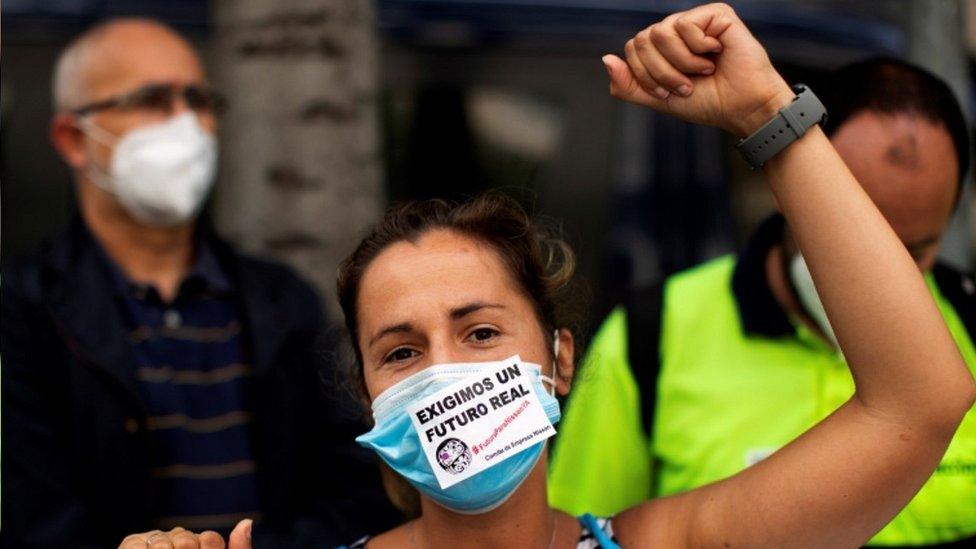
A protesting Nissan worker in Barcelona: "We demand a real future"
EU leaders have failed to agree on a €750bn (£676bn; $840bn) recovery fund for the coronavirus crisis, but Germany called the talks "constructive".
Chancellor Angela Merkel said "the bridges we still have to build are big, that's true, but it was a discussion in a very constructive atmosphere".
Several northern European nations oppose the plan to pay out €500bn in EU grants. They insist on loans instead.
Italy and Spain, worst-hit by Covid-19, would get the largest aid packages.
It was a video summit, but further talks in July, it is hoped, will be face-to-face.
Sweden, Denmark, Austria and the Netherlands say the proposed EU fund is too large and insist any money given out must eventually be repaid.
Earlier, the head of the European Central Bank (ECB), Christine Lagarde, said EU economies were heading for a dramatic fall.
Chancellor Merkel said: "It was clear today that we wouldn't reach a result, but we will continue discussions in mid-July.
"Today was basically a first exchange and it was a very factual discussion."
She added that "nobody called into question that the European Commission would issue bonds".
"It's no exaggeration to say we are facing the biggest economic challenge in the history of the European Union."
Coronavirus leads to food industry crisis in Europe
The EU Commission, which drafts EU laws, calls the plan Next Generation EU. The idea is to direct the aid especially at promising areas such as digital and green technologies, not propping up ailing old industries.
The grants would be funded by allowing the Commission to borrow on the financial markets, with national commitments to the EU budget as a guarantee.
Commission President Ursula von der Leyen said there were "differences of opinion on various issues - for example, the overall size of Next Generation EU, on the balance between grants and loans".
Traditionally the EU helps member states through loans, which have to be paid back, though the terms can be generous.
Spain and Italy have seen the highest number of deaths in the EU during the coronavirus crisis and, in the wake of the financial crisis, are particularly keen on grants rather than loans being added to their public debt.
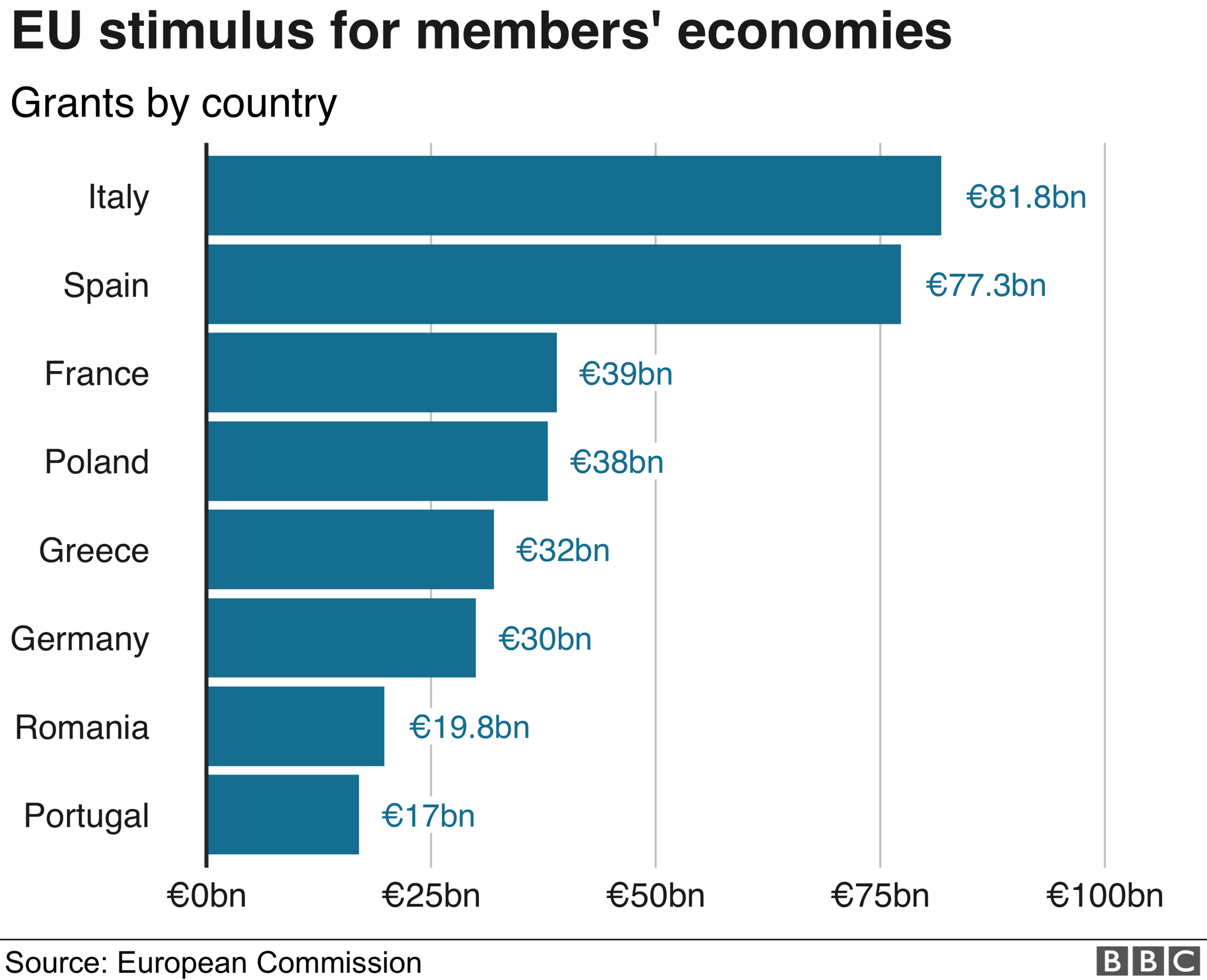

The Commission would borrow from financial markets to raise money for the grants, and the money would be paid back in instalments, after boosting EU income from taxes. The payback would be spread over 30 years between 2028 and 2058.
The Commission has plans for:
A carbon tax based on the Emissions Trading Scheme
A digital tax
A tax on non-recycled plastics
When added to a proposed €1.1 trillion budget for 2021-27, the €750bn recovery fund would bring to €1.85tn the amount that the Commission says will "kick-start our economy and ensure Europe bounces forward".
- Published17 May 2020
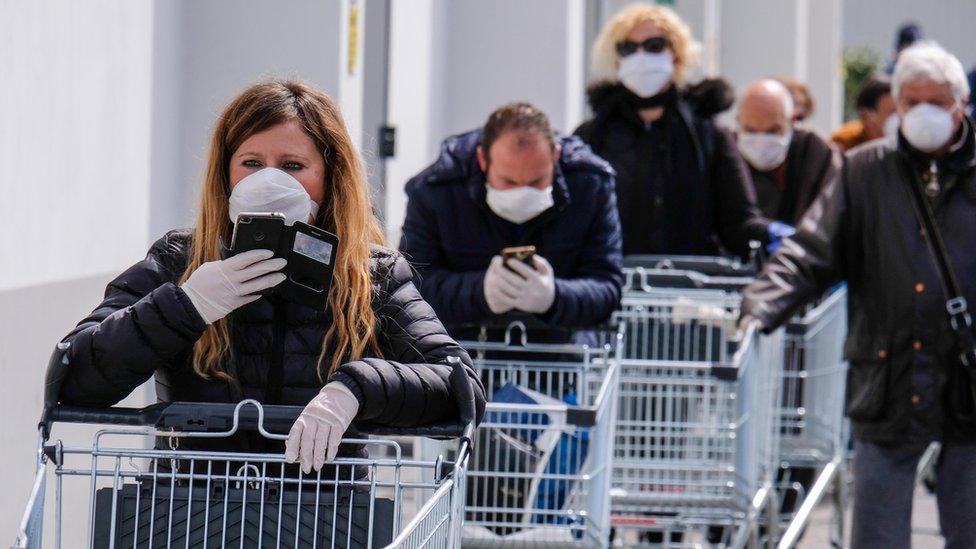
- Published27 May 2020
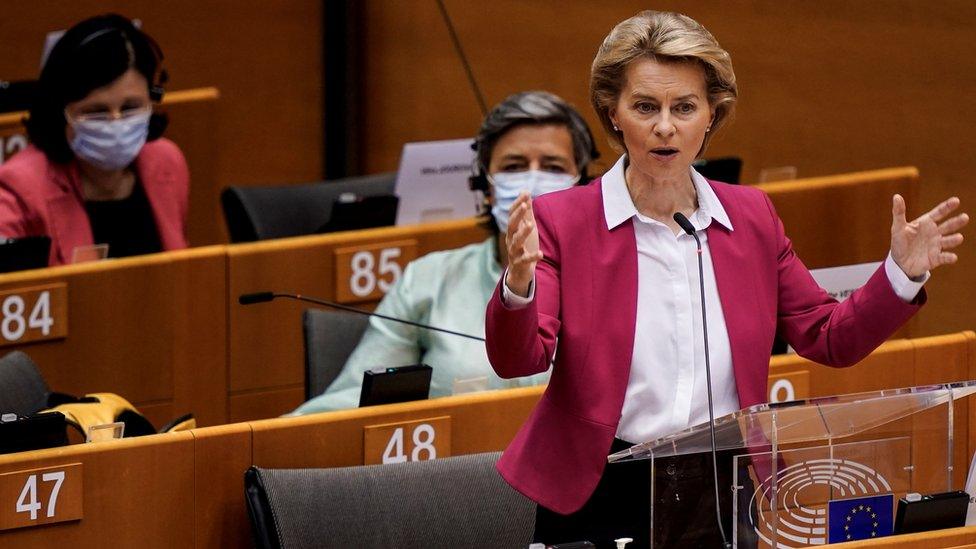
- Published2 July 2020
